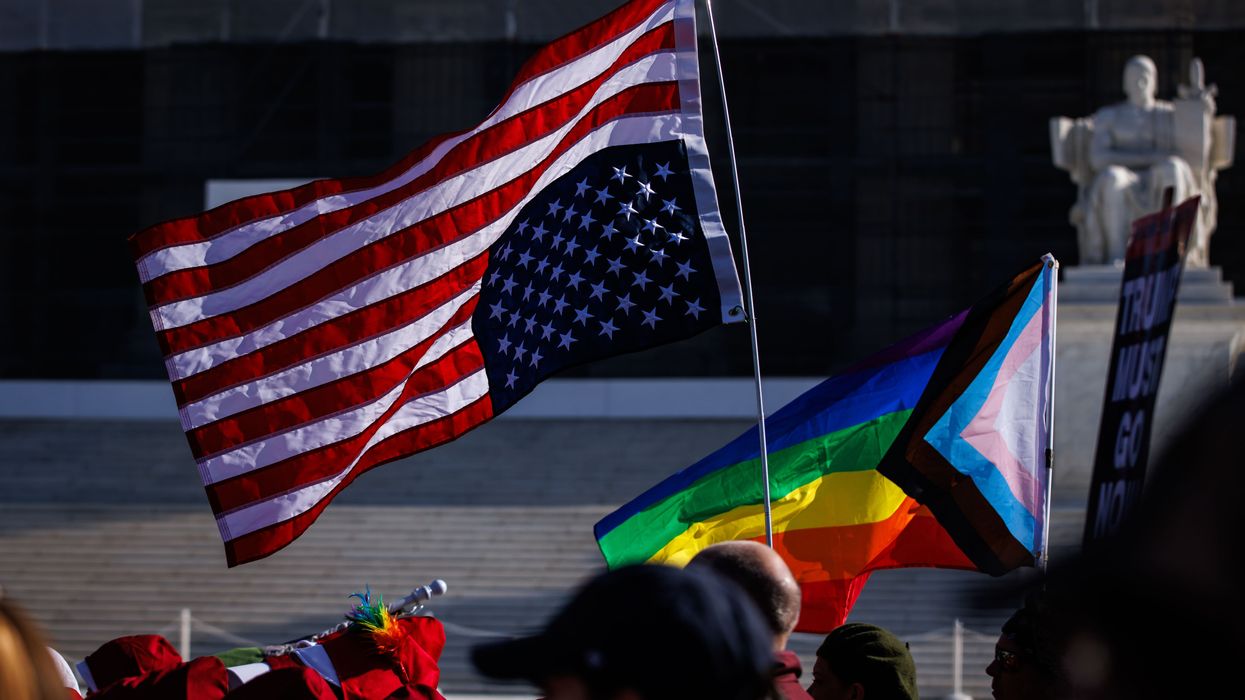Amid a flurry of rulings that have rolled back sexual and reproductive freedom in other realms—including for the LGBTQ+ community—the court's refusal to hear Davis' appeal was considered a small but still invigorating victory.
“The bar is in hell,” wrote Minnesota Gov. Tim Walz on social media. “But this is a win for decency and compassion.”
The ruling came as a relief to advocates for equal rights, who long feared that marriage equality might soon become the next target as the conservative movement grows increasingly hostile to the LGBTQ+ community.
In 2022, as the court's right-wing majority overturned the right to an abortion in the Dobbs v. Jackson Women's Health Organization case, the archconservative Justice Clarence Thomas signaled in a concurring opinion that it should be the start of efforts to fully revise the court's recognition of "substantive due process," that is, the recognition of rights not explicitly granted by the US Constitution.
He questioned not just the right of same-sex couples to marry, but the court’s entire recognition of the right to privacy established by the 1965 Griswold v. Connecticut ruling, which has been the basis for rulings against bans on homosexual relationships and the right to contraception.
Thomas was one of the four conservative justices who dissented from the majority's ruling in Obergefell. Two others—Chief Justice John Roberts and Justice Samuel Alito—also still serve on the court. The other three conservative justices who have been appointed since, all by President Donald Trump during his first term—Neil Gorsuch, Brett Kavanaugh, and Amy Coney Barrett—have remained relatively coy on how they’d rule if marriage equality were to come back up, though they have sided with conservatives in cases that pitted religious liberty against discrimination protections for LGBTQ+ people.
In 2023, the six conservatives ruled that a Christian web designer was allowed to decline services to same-sex weddings, overturning a Colorado law that banned discrimination against gay people. Notably, the designer who brought the case had not actually been asked to design a website for any gay couple, but the court's right-wing majority accepted her case regardless.
This apparent zealousness to intervene in favor of discrimination appeared to be a red flag, but as Harvard University law professor Noah Feldman wrote for Bloomberg, Monday's ruling "is best read as a signal that the conservative majority has little interest in revisiting gay marriage," even as "the conservative constitutional revolution at the Supreme Court remains underway."
He notes that just four justices are required for a case to be heard by the court. And while it has aggressively rolled back the rights of transgender people, ended affirmative action, and recognized unprecedented executive authority for President Donald Trump, when it comes to same-sex marriage, "their silence is noteworthy."
Public support for marriage equality has grown considerably in the decade since Obergefell. In July 2015, a month after the court legalized same-sex marriage nationwide, 58% of Americans said in a Gallup poll that they agreed that same- sex couples should have the same rights as opposite-sex pairs. That number ballooned to a high of 71% in 2023, and even as attacks on LGBTQ+ people have ratcheted up intensely within the conservative movement, support for marriage equality remains stubbornly steady—68% of Americans still say gay marriages should be valid.
Michigan Attorney General Dana Nessel, who represented two of the plaintiffs in the 2015 case, said that while she welcomes the court's decision Monday not to erode the hard-won rights of gay people further, advocates should not become complacent.
"I am relieved for today’s decision reaffirming same-sex couples’ continued right to dignity and protection under the law, but we cannot take those protections for granted," Nessel said in a news release. “Members of this Supreme Court have already told us they are willing to overturn Obergefell. It’s only a matter of time before they do.”
Her state of Michigan is one of more than two dozen in which same-sex marriage would become illegal or face restrictions if Obergefell is overturned. She said that Monday's decision "allows us a reprieve, an opportunity to bring our state Constitution into alignment with the protections our residents are entitled to and have enjoyed for more than a decade. Now is the time to act."




